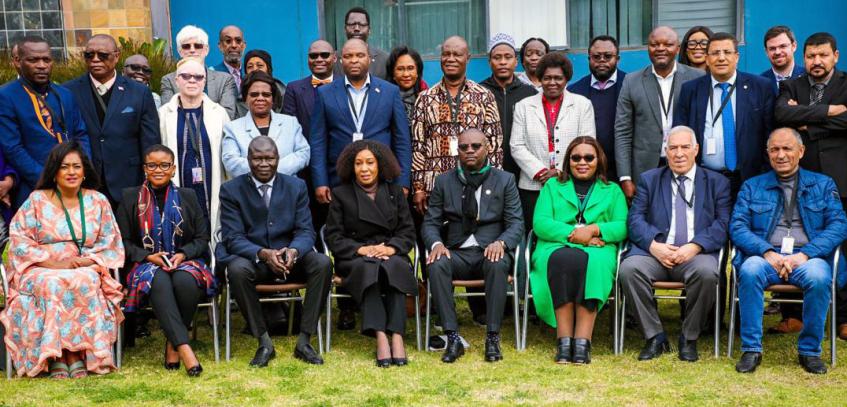The Pan-African Parliament hosted its second dialogue session with civil society groups during the 3rd Ordinary Session of the Sixth Parliament at its headquarters in Midrand, South Africa, on Saturday, June 29, 2024. This session was held under the African Union’s (AU) theme of the year, focusing on education.
In his opening remarks, Mr. William Carew, Head of Secretariat for the Economic, Social, and Cultural Council (ECOSOCC), emphasized the need for continued discussions between the Parliament and civil society groups across the continent. He highlighted that such dialogue is crucial for fostering a democratic, transparent, and responsive governance system that prioritizes the needs and concerns of the people.
Mr. Carew further added that the collaboration between African civil society and Parliamentarians is vital to advancing Agenda 2063, the strategic framework for the socio-economic transformation of Africa over the next five decades. He outlined several areas where the two groups can work together to achieve this ambitious agenda.
He discussed the role civil society forums can play in raising awareness about Agenda 2063 among the public and mobilizing support for its implementation. Meanwhile, Parliamentarians can advocate for policy changes and allocate resources to support the agenda. Mr. Carew also pointed out that civil society organizations can provide valuable inputs and expertise during the formulation of policies and legislation aligned with Agenda 2063, and Parliamentarians can champion these initiatives within the legislative process.
“Civil society can monitor the progress of Agenda 2063 implementation and hold Parliamentarians accountable for their commitments to the agenda. This ensures transparency and effectiveness in achieving the set goals,” he added.
Additionally, Mr. Carew emphasized the importance of investing in capacity-building programs for both civil society and Parliamentarians to enhance their understanding of Agenda 2063, improve their skills, and foster better collaboration. He also stressed the need for partnerships between civil society organizations, Parliamentarians, government agencies, and other stakeholders to create synergies and promote coordinated efforts toward Agenda 2063's objectives.
He stated that prioritizing the inclusion of youth and women in decision-making processes related to Agenda 2063 is essential. Both civil society and Parliamentarians can work together to ensure the active participation of these groups. “Facilitating exchange programs, dialogues, and forums between civil society and Parliamentarians can foster mutual understanding, trust, and collaboration in advancing Agenda 2063,” said Carew.
Supporting his views, Bonolo Makgale, Programme Manager at the Centre for Human Rights at the University of Pretoria, South Africa, and Convenor for the Pan-African Parliament Civil Society Organizations, said that the collaboration between the two will be a cornerstone for African people and their grassroots organizations to be more involved in the discussions and decision-making processes of the Parliament.
Makgale asserted that the Pan-African Parliament has made significant efforts to ensure that the voices of African citizens are heard in various parliaments across the continent by cultivating channels of dialogue for civil society organizations. She highlighted the need to increase the visibility of the Pan-African Parliament and improve understanding of its mandate.
Makgale urged participants to remember that their work is not just about themselves but about the people they represent. The session continued with various topics being discussed by the members of the Pan-African Parliament and the Pan-African Parliament Civil Society Forums.
-Ends-








